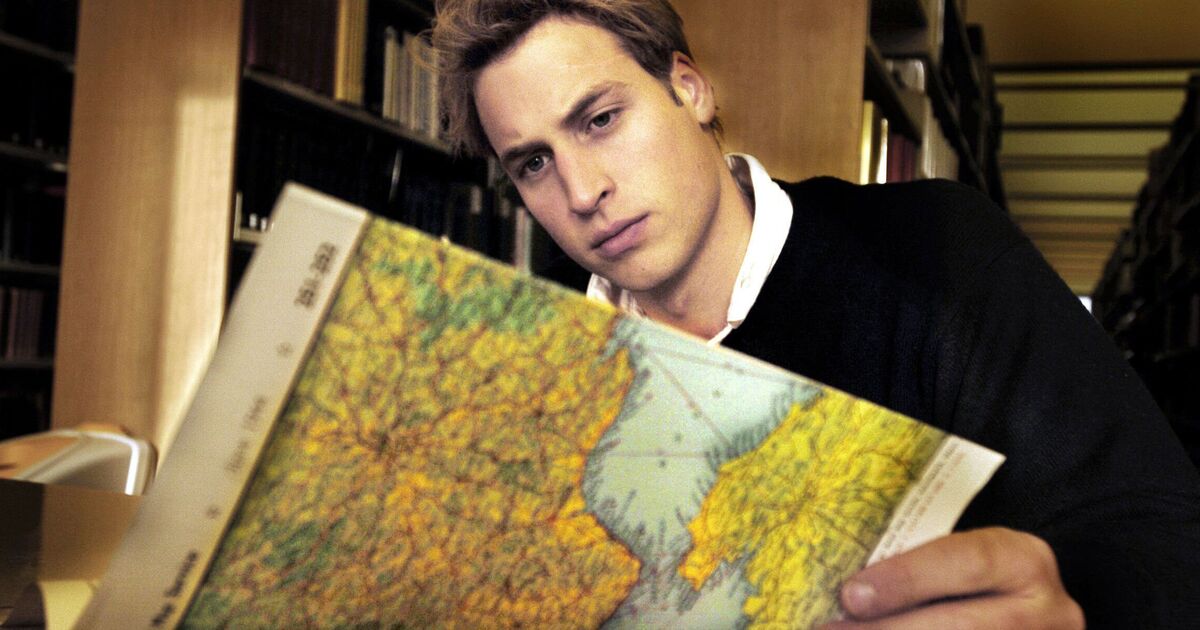A royal attending university unleashes security chaos on campus with a “flurry” of measures that “most students never see”, according to one expert. When Prince William chose to study at the University of St Andrews in 2001, the arrival of a future king brought with it a ripple effect that was felt by every student.
“When a royal enrolls at university, there’s a flurry of activity most students never see, from tightened security and media blackouts to quiet adjustments in student culture,” says Owen O’Neill, the founder of Uni Compare. There were claims that manhole covers were sealed ahead of William’s arrival at events, with more students noticing a security car patrolling town while William was a student.
There were more reports of extra precaution of manhole covers before his graduation to prevent journalists popping their heads through them for a million dollar shot when his Granny, the Queen, accompanied him to the celebration.
When a royal enrols, a new social code emerges. “Prince William made it clear early on that he didn’t want special treatment, and that he expected privacy,” said O’Neill. “After a brief photo op outside St Salvator’s Hall on move-in day – complete with screaming fans – he largely vanished from the public eye, aside from a few photo ops and paparazzi snaps.”
Students mostly respected an unspoken agreement don’t gawk, and definitely don’t spill to the press. Locals refused to rent out properties to journalists and would confront paparazzi in the streets. As one former student put it, “After the initial excitement, life just went back to normal. That’s probably why William liked it.”
There were occasional breaches, like photographers lurking outside William’s graduation ball, hoping for a glimpse of the prince and his future wife, Princess Kate. But by and large, students and locals protected William’s privacy. Even when tabloids offered students money for their event wristbands, no one took the offer.
“Respect for William’s privacy was unusually high, perhaps helped by the very recent memory of what his mother, Princess Diana, had endured,” O’Neill said. He added that increased security measures often include “a subtle recalibration of norms.” He continued: “You may find professors being more cautious, peers being more reserved, and events discreetly curated. Royals usually want to be treated like everyone else – and to a degree, that’s achievable – but the invisible infrastructure around them tells a different story. Every interaction is quietly filtered through the awareness that this student’s future is unlike anyone else’s.”
Universities aim to give royal students a “normal” experience, but it often involves quiet adjustments. For example, their social circles may be self-selecting, or revolve around sport and student societies where everyone’s too focused on the game to care about titles.
“In many cases, royals want to be treated like everyone else, and that can absolutely be respected – but there’s always an unspoken awareness that they aren’t just another student,” said O’Neill. “Their presence changes the energy in a room. Whether it’s staff tiptoeing around public commentary or peers wondering if their flatmate is secretly dating a future queen, life on campus shifts, even when it’s subtle.”
Prince William lived in halls in his first year, then a flat on Hope Street, before eventually moving to a private cottage outside town. He played sports (including golf, rugby, and water polo, studied in the library, and went to the pub. However, he skipped most student parties and union events, probably because of worries over his privacy.
O’Neill continued: “While universities aim to treat all students equally, the reality is that the presence of a royal introduces a complex balancing act. The institution has to quietly adapt. Security is one thing, but institutions also have to manage the social dynamics.
“Prince William once joked that students at St Andrews leave either married or alcoholics. In his case, he walked away with a degree and a duchess. But during his four years there, William managed to live more or less like any other student. He may have had a convoy of protection officers, but at its heart, his student experience was grounded in the same things that make uni memorable for anyone.”
William wasn’t the first royal to walk the hallowed halls of higher education – and he won’t be the last. William’s cousin, Lady Louise Windsor, followed in his footsteps and is currently studying English at St Andrews. “Universities now have more practice in how to accommodate these young royals discreetly,” said O’Neill. “Background protocols, off-the-record staff briefings, and a light-touch media strategy let them grow up like normal students, largely outside the spotlight.” The Express has contacted St Andrews University for comment.
